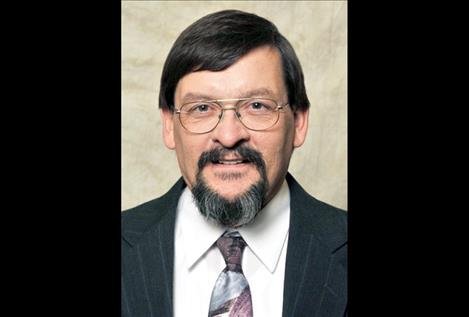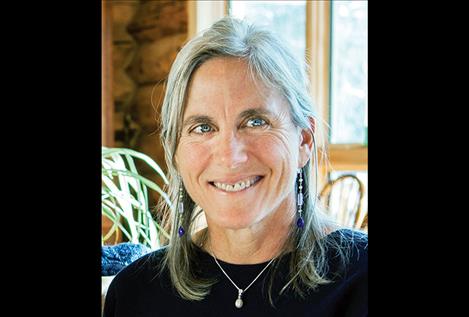House District 93 candidates share views
Hey savvy news reader! Thanks for choosing local.
You are now reading
1 of 3 free articles.
The Valley Journal continues its election coverage with Q&As of candidates for House District 93, where political newcomer Lisa Pavlock (D) is running against incumbent Joe Read (R). The district runs from east of Polson, along U.S. Highway 93 and south to Arlee.
Joe Read, Republican, website: ballotpedia.org/Joe_Read
The incumbent served from 2011-2013 as the representative for House District 15, and from 2018-2020 as representative for HD 93. He has served on the judiciary, health and human services, agriculture and appropriations committees and on the interim State-Tribal Relations Committee.
The youngest child of veterinarian “Doc” and Angie Read grew up in Ronan and has worked at multiple local businesses. He attended Northern Montana College (now MSU Northern) and Montana State University and earned an associate’s degree in forestry from Salish Kootenai College. He taught welding and mechanics at Kicking Horse Job Corps.
At age 23, he opened his own mechanic shop in Ronan and continues to run a farm/ranch operation. For the past three decades, he’s worked as an independent contractor for the federal government, helping to manage forest fires and other large disasters, including Hurricane Katrina. He’s currently deployed with a type two incident management team in Colorado.
He and his wife Jill live in Ronan. Of his five children, three are Blackfeet Tribal descendants.
“Sometimes history is made by our next-door neighbor,” says the candidate, who traces his interest in politics to the 2004 election when a tight three-way race between Rick Jore, Jeanne Windham and Jack Cross for House District 12 was ultimately decided by the Montana Supreme Court in favor of Windham.
“When good men are pilloried in court, and you believe you have the skills to better a situation, that makes you want to run and correct injustices,” writes Read, who believes the case was unfairly decided.
He says his work on national disasters helps him “understand and assist the processes at the state and county level.” Local issues, he notes, are complicated by Lake County’s relationship to tribal and federal governments. He vows to bring to all his decision-making a strict adherence to “the U.S. and Montana constitutions.”
1. If elected, what are your priorities for the next political session?
Keep the balanced budget and get the state working again. If that means extracting natural resources, I am for it. I am also all for keeping our natural resources from harm and we have the laws to do that. Sometimes it is the makeup of our courts that is our biggest issue in the state of Montana. I also support keeping our back roads open and available for fire control and recreation.
2. The COVID pandemic has clearly affected small businesses across Montana including farmers and ranchers. How can Montana’s Legislature help Main Street and rural Montana recover and thrive?
Sometimes asking the Legislature to fix the problem in a timely matter is not the wisest or most expedient thing to do. Law should be made slowly and deliberately; emergencies should be handled by the people that the Legislature and the state government have appointed to do those things. Then, when you look at it in hindsight, it may be time to correct it by making law or adjusting law or removing law. There are unintended consequences if a legislative body rushes to fix something without a debate and participation of the public.
3. Likewise, how can the Legislature support educators and other frontline workers?
This is an issue for the school administrators and the counties where those schools are located. State legislature and the governor’s office should allow those entities to do their due diligence; finding monies to support local efforts, and supporting those agencies responsible for the decision-making process is imperative. I do not like kneejerk responses from the legislative body, but I don’t like out-of-control social engineering.
4. Do you consider working across the aisle a priority? And if so, how do you plan to accomplish that?
I have always worked across the aisle with friendly opposition – sometimes the opposition chooses to take offense and isolate themselves. When this has happened in past sessions, the anger builds and that has always led to accusation and inaction. Very seldom is there a fix inside the pressure container of a 90-day session.
Lisa Pavlock, Democrat, website: www.lisapavlockhd93.com
Because of her father’s military career, the Democratic candidate for HD 93 grew up at military bases and in communities across the country and overseas. “I am, however, so pleased to now call Montana home,” she writes.
Pavlock and her husband, Ben, were married in St. Ignatius in 2006, and their daughter, Marina, was born in Missoula. Together, they co-founded Glacier Lake School in St. Ignatius in 2014, following the entire family’s migration to Montana. One sister and her parents run a family farm in St. Ignatius, while her other two sisters work at Missoula businesses.
Pavlock graduated from Smith College in 1992 and finished her master’s in education from George Washington University in 1999.
She comes from a family that has always valued service. Her mother was a nurse, and her father served in the Navy until his retirement. “I have always wanted to make an impact to help the community where I live,” she says. So when community members encouraged her to run for House District 93, “I could not help but get involved.”
As an educator, Pavlock enjoys bringing people together to work through issues. Additionally, as a founder of Glacier Lake School, “actively listening to all sides has allowed me to build bridges to get things done.”
1. If elected, what are your priorities for the next political session?
Access to quality, affordable healthcare through the Affordable Care Act must be maintained and expanded. Expansion of Medicaid in Montana has played a large role in boosting preventative care for all Montanans and this must continue.
Education is the backbone in a community like ours. Making certain that public schools are adequately funded and that educators are supported will make sure we inspire the next generation of learners.
2. The COVID-19 pandemic has clearly affected small businesses across Montana including farmers and ranchers. How can Montana’s Legislature help Main Street and rural Montana recover and thrive?
ly in the beginning to ensure the health and safety of our citizens. Our local communities have suffered enormous hardship during this health crisis. We will need to continue to be the leaders who can make tough decisions to ensure the safety of Montanans.
We must create the economic impetus to get our economy growing again, and I will work to make that happen. Supporting our businesses, and each other, is the key to making sure that we thrive once more and build together out of this crisis.
3. Likewise, public education and child-care resources have been strained by the pandemic. How can the Legislature support educators and other front-line workers?
The state government must ensure schools are sufficiently funded to support the curricula established through community and state guidelines. A qualified and motivated staff of educators can then execute the guidelines established by the state and local school districts.
More broadly, front-line workers need to know that we are supporting them with the equipment needed to be safe, as well as doing all that we can to make sure that we are driving down the cases in our neighborhoods.
4. Do you consider working across the aisle a priority? And if so, how do you plan to accomplish that?
In the past, I have worked and volunteered for non-partisan organizations because I believe that working across the aisle is important to dealing with core issues in politics. In talking to voters, it is clear to me that people in Lake County want to get back to being able to talk to their friends and neighbors regardless of what party they vote for. And, I believe that finding common ground between legislators is crucial to building those bridges and will build trust so that we can make political decisions that make a difference for Montanans.
Ballots mailed Oct. 9
Lake County has opted to vote by mail this year, due to risks posed by the COVID-19 pandemic. Ballots are currently available at the Lake County Election Office in Polson and will be mailed directly to active registered voters and provisional voters Oct. 9.
Regular voter registration closes Oct. 26, with late registration beginning Oct. 27. Voters must register in person at the election office, located in the Lake County Courthouse.
Voters may vote in person at the election office, hand deliver their ballots to the office by 8 p.m. on Nov. 3 or return ballots by mail with the enclosed prepaid envelope (ballots received after 8 p.m. Nov. 3, regardless of postmark date, will not be accepted).
To track ballots or check on their voter status, Lake County residents may log on to app.mt.gov/voterinfo or call 406-883-7268.

















